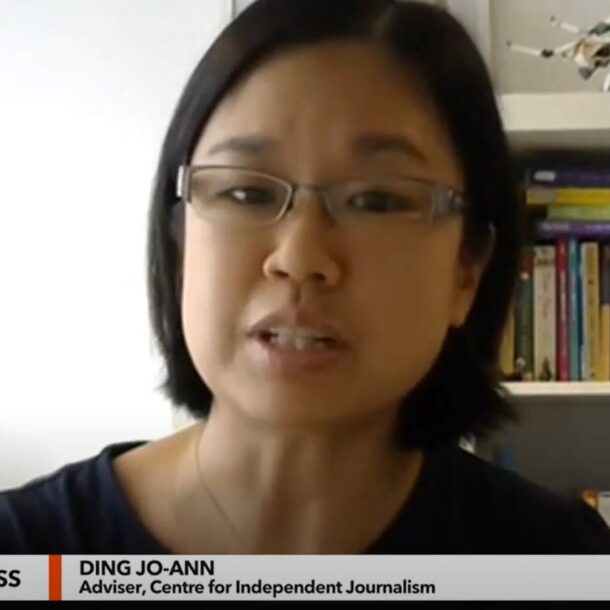
PETALING JAYA: A media council must be set up to focus on legal reforms to regulate the industry and protect media freedom in Malaysia, says Human Rights Commission of Malaysia (Suhakam) chairman Tan Sri Othman Hashim.
These needs, he added, have been “a long time coming”.
“We need to continuously allow for open and transparent discussions on this.
“Journalists and media organisations should be encouraged to take a strategic role in promoting and advancing a strong, independent and diverse media through capacity building and engagement in policy and planning processes, ” he said in a virtual forum to mark World Press Freedom Day organised by Suhakam and the United Nations yesterday.
Othman said the protection of the right to freedom of expression, including through print and online media, is important because the exchange of ideas is necessary to democracy, the growth of knowledge and the development of individual judgment.
“On March 17, Reporters Without Borders released its 2021 World Press Freedom Index ranking Malaysia 119th out of 180 countries, dropping 18 spots from 2020.
“This is an indication of a deterioration in upholding press freedom during the past year and that more intentional and purposeful corrective actions should be instituted to reverse this trend, ” he said.
Although the advent of electronic media has opened the door to faster and wider reach for news and reporting, Othman noted that it has also in some ways negatively impacted the livelihood of traditional journalists and media companies.
He said support should be provided, including upskilling or innovative ways of sustaining the industry, for media professionals and companies.
Themed “Information As a Public Good”, the forum had two panel sessions on Press Freedom and the Right to Information, Youth and Press Freedom, Media Survival and Sustainability, and Media Ethics.
One of the speakers, Prof Dr Emma Mirza Wati Mohamad who chairs Universiti Kebangsaan Malaysia’s Centre for Research in Media and Communications, said teaching media literacy and critical thinking in children is important amid the online spread of fake news and hate speech.
“It’s about preparing them as early as possible to know how to react and become critical thinkers when they are presented with this kind of information.
“We need to educate our younger generations but also to put a stop to hate speech, misinformation and not accepting this as normal in our society, ” she said.
She added that the media should also correct false messages in today’s “post-truth era” to uphold integrity as the Fourth Estate.
Prof Emma Mirza said Malaysians must call out leaders and political figures, who are opinion leaders, when they erred.
“We have to be brave and highlight it to the public to know that not everything that comes out from leaders is true, ” she added.
Centre for Independent Journalism’s media monitoring and action programme officer Vinodh Pillai said misinformation among the people should be addressed.
“Don’t prosecute misinformation or censor dissenting opinions but inform with facts, promote informed debates and uphold human rights standards.
“The government can do better when dealing with fake news, ” he said, adding that when clarifying, it should include how it is fake, what exactly is wrong and what is right.
On the Freedom of Information Act, the Prime Minister’s Department’s legal affairs division’s director of policy and research Punitha Silivarajoo said the government is hopeful of coming out with something next year.
She said the government is working on ironing out issues and engaging with stakeholders, where among the questions that needed addressing were whether the Act would replace or coexist with the Official Secrets Act, the scope of information to be accessed and the justification of access to certain documents.
Punitha also said her office would study cases in Selangor and Penang, the only two states with freedom of information provisions, and engage with other experts.
At the forum, social activist and journalist Mahi Ramakrishnan also raised concerns over the possibly intensified media clampdowns as criticisms of the government and its policies grew during the Covid-19 pandemic.
Source: The Star Online
